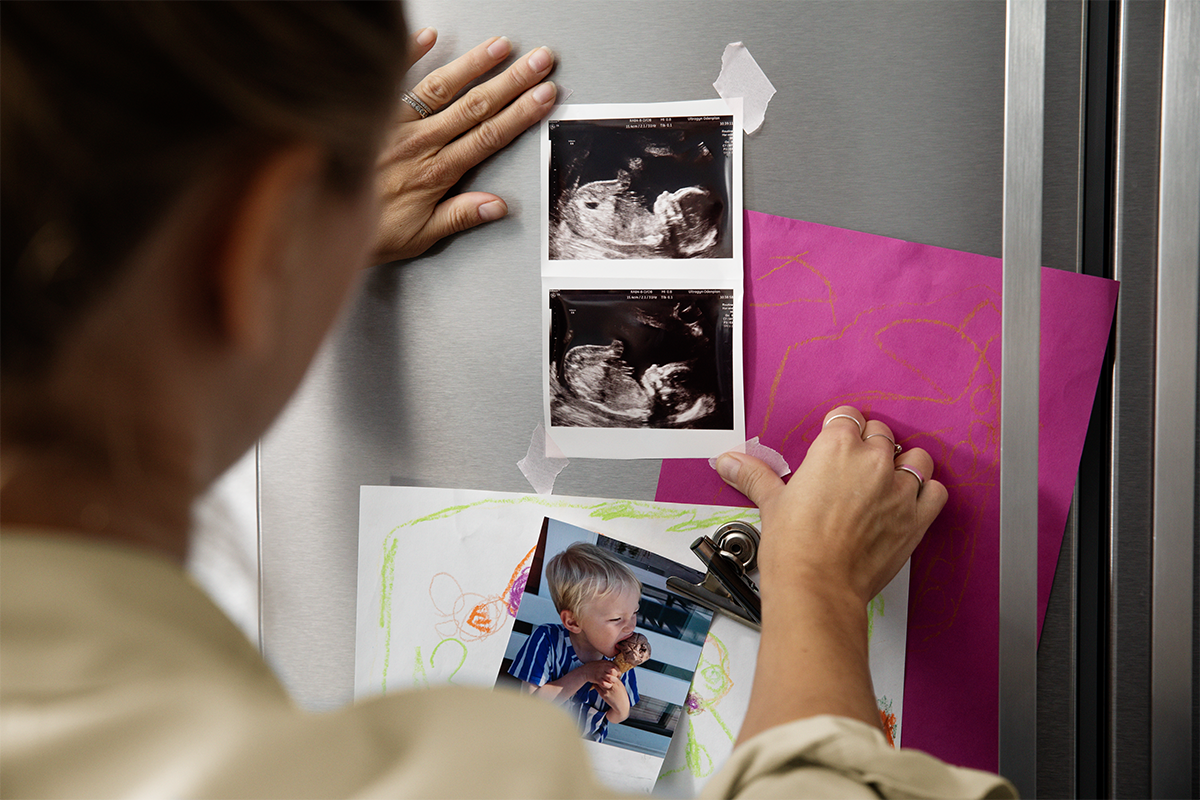Smoking and snuff use while pregnant
As most people know, smoking is harmful when you’re pregnant – not just smoking yourself, but second-hand smoke as well. But did you know that snuff use during pregnancy is equally high-risk?
We know that quitting smoking while pregnant rarely has to do with a knowledge gap or not really wanting to. Almost everyone knows smoking is dangerous and tries to quit. As for the effects of snuff, general knowledge isn’t as widespread, but we now know that snuff use during pregnancy is just as harmful as smoking. But just what is the harm to your baby, and what if you smoked or used snuff before you knew you were pregnant? We’ll explain it all here.
Smoking while pregnant harms the baby
Yes, smoking harms both you and the baby in your belly – the research world has agreed on this for a long time. All the toxic substances in tobacco reach the foetus directly via the placenta and umbilical cord. But it’s also good to know that as soon as you quit using tobacco, the risks for the baby decline. Of course, it isn’t easy to quit smoking; the biggest motivation might be the idea of the little life inside your belly – not wanting to harm your baby – but sometimes, the addiction is stronger. So it’s good to know that several tools are available. Seek support from your doctor or midwife to learn what to do to quit, or try calling a helpline for quitting smoking. However, fussing around with substitutes on your own isn’t a good route, because nicotine products and e-cigarettes also have risks for the foetus. And it’s important to know that smoke from a water pipe is just as dangerous for the foetus as cigarette smoke.
Snuff during pregnancy is equally harmful
The effects of snuff on the foetus were previously slightly more debated, but research has shown that snuff use during pregnancy is just as risky as smoking when it comes to stillbirth and premature birth. In addition,as with smoking, it significantly elevates the risk of sudden infant death syndrome (SIDS) once the baby is born. This is because it is the nicotine – which of course is in both cigarettes and snuff – that increases the risk of SIDS. Thus, the conclusion is that all forms of nicotine should be avoided both during pregnancy and after the baby has arrived. Here too, it’s important to remember that if you’ve stopped using snuff early in pregnancy, the increased risk is very minor.
Passive smoking is harmful for the baby
As with smoking, we have known for a long time that even second-hand smoke is dangerous. As all of the organs are developing in the foetus, the baby is extra sensitive and receptive to second-hand smoke. Among other things, this increases the risk of miscarriage and could also impact the development of the baby’s brain and nervous system. Research has also shown that when pregnant people are exposed to second-hand smoke, it increases the risk of the baby later developing allergies and asthma, probably due to disruptions to lung development, which can result in various respiratory problems. This means that it is not only the responsibility of the pregnant person to put the cigarettes away – everyone in a household awaiting a baby has an equal responsibility.
Risks of tobacco use during pregnancy
If you need a concrete argument for quitting smoking or using snuff, we’ve listed the risks of continuing and great reasons to quit here.
- Increased risk of premature birth
- Increased risk of miscarriage, not only with active nicotine use, but also with passive smoking
- Second-hand smoke exposure in pregnant people puts the foetus at risk of disruptions to development, for example of the brain and lungs.
- Risk of placental abruption (the placenta detaching from the wall of the uterus)
- Increased risk of birth defects, such as cleft palate
- Increased risk that the foetus will not grow properly and may have a low birth weight
- People who use nicotine while pregnant are at higher risk of losing the baby to SIDS.
- Quitting tobacco during pregnancy also prevents the baby from being exposed to increased risks of numerous other complications after birth. You can read more about that here.
- There are almost no elevated risks for pregnant people who quit early during the pregnancy!
- The earlier the pregnant person quits smoking, the more lung capacity can be recovered, which is very useful during pregnancy and childbirth.
Help is available!
It’s important to remember that help and support are available. Smoking and snuff are highly addictive and if you need it, make sure to get help. It can be easy to feel defeated if you can’t manage to kick your nicotine habit; you might feel like a bad parent and you might feel ashamed around your midwife or doctor. But everyone who tries to make changes to their lives for the sake of their baby does so out of thoughtfulness, and that is something to be proud of. Still, sometimes you just need a little outside help to move things in the right direction. The important thing is to seek and accept help early – whether you are pregnant or your partner is. Because in fact, everyone can quit smoking or using snuff. It may take a lot of focus and energy, but for many people, pregnancy is actually the turning point for becoming smoke- or snuff-free for good.
Please note that all information above is based on Swedish recommendations.



